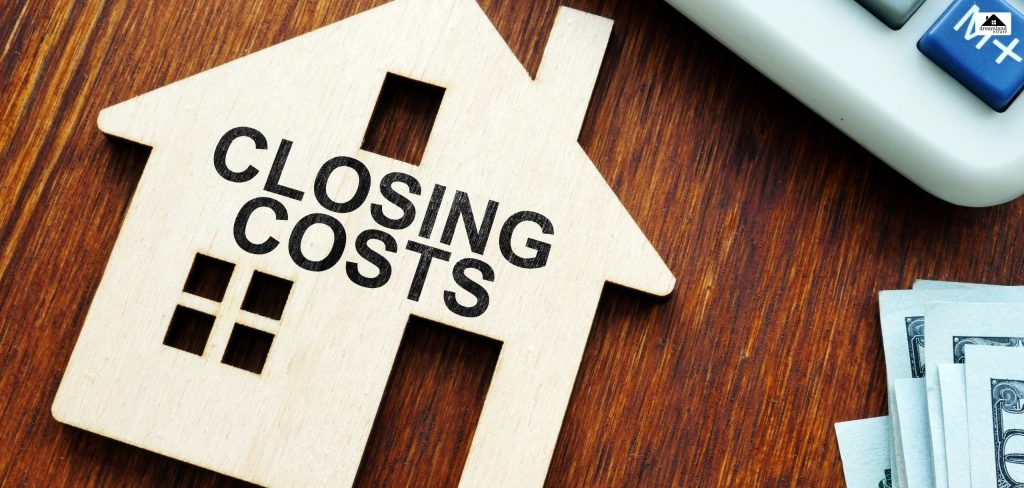A Homebuyer’s Guide to Closing Costs in Washington DC (2025)

For most buyers in the district, the most shocking thing is not the final price!
It is now the second page of their settlement statement. If you are seeing a $700,000 price tag, an additional $20,000, $25,000, or even $30,000 in cash to close can be a moment of pure sticker shock.
Now, you might be using the national “closing cost calculators”, but you are being set up for a major surprise.
Here’s the truth! D.C. is different! Nobody can deny that!
Our local market has unique rules and taxes you may not find in neighbouring Virginia and Maryland markets.
These national sites seldom account for D.C.’s specific recordation or transfer tax. These can lead to dangerously low estimates!
We at dreamlandestate.com, the DC-based real estate experts, have been guiding hundreds of buyers through the same process. Every smart homebuyer is an informed homebuyer.
In this guide, we will explain the average closing costs DC. We will specifically break down the confusion of the DC recordation tax and transfer tax.
This will detail exactly who will pay the closing costs in DC and provide 5 actionable strategies to help you cover them.
What Are Closing Costs? (The 3 “Buckets” of Fees)

“Closing costs” refer to all the additional fees, taxes, and expenses required to complete real estate transactions.
They also represent the money buyers must bring to closing, in addition to the down payment. These costs can be broken down into three major categories:
Bucket 1: Lender Fees (Your Mortgage)
These are the charges that your bank or mortgage lender imposes on you for the loan processing and creating your loan.
Some of the main examples include:
- Origination Fee: The fee that is charged, which is normally between 0.5% and 1% of the loan amount, for the process of originating and underwriting the loan.
- Application Fee: A fixed fee charged for processing your application.
- Credit Report Fee: A fee for the credit report requested by the lender.
- Appraisal Fee: The cost of the third-party appraisal, which is required to confirm the lender’s value of the home.
- Discount Points: A money paid to the bank in exchange for a lower interest rate, which is optional.
Bucket 2: Title & Settlement Fees (Your “Closing Agent”)
This group of charges covers the third-party title or settlement company, which provides a guarantee that the property is clear and conducts the legal closing.
- Title Search: The fee paid for the search of public records for liens or ownership disputes.
- Lender’s Title Insurance: A required policy that shields the lender if the title search results in an error.
- Owner’s Title Insurance: A highly recommended, optional policy that protects you, the new owner, from any future title disputes.
- Settlement Fee (or Escrow Fee): The fixed fee given to the title company or attorney for performing the closing and handling paperwork.
Bucket 3: Government Taxes & Prepaid Items (The “D.C.” Part)
This category consists of various items, specifically taxes and other amounts still due, which are usually much more expensive.
- Prepaid Property Taxes: Usually, you need to pay up to 6 months of property taxes upfront to set up your new escrow account.
- Prepaid Homeowner’s Insurance: The insurance company should receive an amount equal to the first full year of insurance at or before closing.
- “The Two Big Ones”: The substantial D.C. Recordation Tax and the D.C. Transfer Tax, which are the main contributors to the overall cost.
The 2 Big Ones: D.C.’s Recordation & Transfer Taxes Explained

This is the most crucial section of this particular guide; there is no doubt in that! Once you can easily understand these two specific taxes, it will be easier for you to do the actual budgeting for your DC home purchase.
Washington, D.C. has the Transfer Tax and the Recordation Tax, which are two important and equal taxes on property sales.
The selling price determines the tax rate: 1.1% for properties priced under $400,000 and 1.45% for those priced at $400,000 or more.
1. The D.C. Transfer Tax
The D.C. Transfer Tax is a tax the District charges on the actual transfer of property from the seller to the buyer.
The tax is on the transfer itself. For a home costing $700,000, the tax will be $10,150 just for this ($700,000 x 1.45%).
2. The D.C. Recordation Tax
The D.C. Recordation Tax is a separate tax for the recording of the new deed with the city’s Recorder of Deeds.
This is making the new ownership public and official. The Recordation Tax is also $10,150 for the same $700,000 property ($700,000 x 1.45%).
3. The “D.C. Double Tax”
So, I Pay Both? Which is the “Combined 2.9%” Shock? The answer is “Yes”!
Buyers are subject to a total tax of 2.9%, a mandatory government tax on properties valued at $400,000 or more.
This is one of the main reasons out-of-town buyers experience sticker shock: national calculators usually do not include these unique local taxes.
The combined tax, which can be $20,300 on a $700,000 condo or $29,000 on a $1,000,000 rowhouse, is often more than the total of lender and title fees combined.
However, the good news is that, in most cases, the seller pays the D.C. Transfer Tax, while the buyer pays the Recordation Tax.
Who Pays for What? A Simple Buyer vs. Seller Breakdown in D.C.

In a home sale, a few things can be bargained such as the closing costs DC which are usually split between the buyer and the seller in a D.C. real estate transaction according to the local custom.
What The Buyer Normally Pays
A buyer usually takes responsibility for paying expenses directly related to obtaining a loan and ensuring a property is in good condition to serve as their new home. These charges are among others:
- Complete Lender Fees: This payment covers costs associated with the mortgage, including origination, appraisal, and credit report fees.
- Home Inspection Fee: The purchaser usually pays the inspector directly, who then provides a report to the parties.
- Lender’s Title Insurance Policy: Required and protects the lender’s interest in the property.
- All the “Prepaid” things: In this case, prepaying the first year of the home insurance and initial deposits for the escrow account for property tax payments. Half of the D.C. Taxes (Recordation and Transfer Taxes).
What The Seller Normally Pays
A seller is responsible for paying expenses related to the property’s promotion and commissions, and for providing a clear title to the buyer. These are mostly:
- All Real Estate Agent Commissions: Both the seller’s agent’s and the buyer’s agent commissions are paid by the seller.
- Owner’s Title Insurance Policy: One of the most advantageous local customs in D.C. is the seller bearing the cost of the buyer’s Owner’s Title Insurance policy, which protects the buyer’s equity.
- HOA/Condo Resale Documents: The buyer must pay for the documents that the condo or homeowners association provides that certify the unit/house’s status and the account.
- Half of the D.C. Taxes (Recordation and Transfer Taxes): It is worth noting that this standard cost split helps manage expectations, though the final decisions may be negotiated.
The 2 Big Taxes: The “Traditional 50/50 Split”
This is the local insider tip that you have been searching for. As per the long-established local custom, the D.C. Transfer Tax and the D.C. Recordation Tax are each charged 50/50 to the Buyer and to the Seller.
In almost every case, the standard GCAAR (Greater Capital Area Association of Realtors) sales contract states that the parties will share the taxes equally.
We can take a look at our $700,000 house purchase once more:
- Total Taxes (2.9%): $ 20,300
- Seller’s 50% Share: $10,150
- Buyer’s 50% Share: $ 10,150
It means that even though the total tax comes to a staggering $20k, the share you take as the buyer is a more reasonable (still very large) $10,150. This is indeed the real figure you need for your budget.
Here is an easy-to-understand table that will help you plan your budget and set aside the money for your half of this D.C. tax.
| Sale Price | Total Tax (2.9%) | Buyer’s 50% Share (Your Cost) | Seller’s 50% Share |
|---|---|---|---|
| $500,000 | $14,500 | $7,250 | $7,250 |
| $700,000 | $20,300 | $10,150 | $10,150 |
| $900,000 | $26,100 | $13,050 | $13,050 |
| $1,200,000 | $34,800 | $17,400 | $17,400 |
A Note on D.C.’s “Tax Abatement for First-Time Buyers”:
D.C. once offered a wonderful program, the “D.C. Tax Abatement Program,” that would have allowed first-time buyers to purchase homes without paying the Recordation Tax.
Please note that the program was replaced by other first-time buyer programs in D.C., such as HPAP. From 2025 onwards, you are not supposed to budget for this tax waiver anymore.
5 Real Ways to Reduce Your Closing Costs DC

Fortunately, upon D.C. homebuyers’ shoulders, providing them with a significant advantage, are closing-cost strategies.
Proactiveness and local expertise, along with existing programs, can lead to hefty cash reductions at closing for the new house.
1. Shop Your Lender (top method)
The most efficient way to reduce total closing costs DC is to compare offers from different mortgage companies.
After the loan application is complete, lenders should provide the consumer with a Loan Estimate form identical in all respects to every other lender’s.
- Focus Areas: Monitor the charges listed under Sections A (Origination Charges) and B (Services you cannot shop for).
- Potential Savings: Comparison of these line items may uncover large differences, sometimes in the range of hundreds or thousands of dollars, because they are the lender’s direct charges.
2. Shop for Title and Settlement Services
Even though many homebuyers get it wrong and think they have no choice but to go with their lender’s or realtor’s recommended title company, this is an incorrect assumption.
In fact, you can look around for the best title and settlement services for you.
- Compare Quotes: Get similar quotes for the closing fee, the title search, and the owner’s title insurance policy (in case you are paying for it).
- Finding Providers: Through the Recorder of Deeds site, you can access a list of D.C. title companies that can help you secure a good rate.
3. Ask for a “Seller Credit” (or “Seller Concession”)
Negotiating a seller credit is a strategic technique that would help you with your cash-to-close expenses.
- How it Works: You will likely offer the full purchase price, on the condition that the seller pays a percentage of your closing costs DC (usually 2-3%).
- Financial Impact: The amount of credit is subtracted from the seller’s proceeds and is directly applied to your closing costs, thus rolling a part of those expenses into the total amount you finance along with your mortgage.
4. The First-Time Home Buyer Advantage (HPAP, etc.)
The District of Columbia offers extensive programs for first-time home buyers that can significantly reduce or even eliminate closing costs.
- Financial Assistance: Programs like the Home Purchase Assistance Program (HPAP) offer deferred loans for down payments and closing costs DC to qualified buyers.
- Tax Reduction: The D.C. transfer tax reduction program for first-time homebuyers provides a significant reduction in the recordation tax.
This is bringing the rate down to just 0.725% on properties under a certain value.
- Eligibility: Find out specific requirements on the official DC Department of Housing and Community Development website to check your qualification status.
5. Schedule Your Closing for the End of the Month
This is an insider’s secret tactic to lessen the “prepaid interest” amount you will have to pay at closing.
- The Rule: Lenders will charge daily interest from the date of your closing until the end of that month.
- Maximising Savings: If you close on the 28th, 29th, or 30th, you will only have to pay for a few days’ worth of interest at the start.
On the other hand, closing on the 1st of the month means prepaying almost an entire month’s interest at closing, which makes your initial cash outlay very high.











Leave A Reply